Mortgage Article Library
Learn more about the mortgage process, mortgage rates, credit scores, and loan programs.
This site is a free online resource that strives to offer helpful content and comparison features to our visitors. We accept advertising compensation from companies that appear on the site. Company listings on this page DO NOT imply endorsement. We do not feature all providers on the market. Except as expressly set forth in our Terms of Use, all representations and warranties regarding the information presented on this page are disclaimed. The information, including pricing, which appears on this site is subject to change at any time.

Elections & Mortgage Rates: What Homebuyers Should Know
As mortgage rates fluctuate, Americans question how much presidential policies influence housing costs. In reality, the connection isn’t as direct as campaign speeches suggest.

Mortgage Rates Forecast for 2023
Mortgage rates have skyrocketed in 2022. At the start of the year, the interest rate for the average 30-year fixed-rate mortgage in the US was just 3.11% APR. Nearing the end of the year, the average 30-year mortgage carries an interest rate of 6.61%. With some analysts predicting an economic recession, there’s a lot of uncertainty about what might happen to mortgage rates in 2023 and beyond.
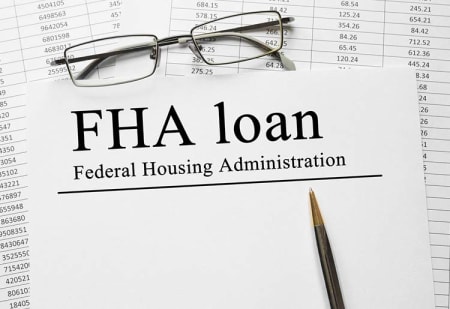
FHA Loans 101 for 2025
FHA mortgage loans are an attractive option for first-time homebuyers. If you’re looking for your first home and don’t have 20% of the home purchase price for a conventional loan down payment, FHA loans backed by the U.S. government can offer between 3.5% and 10% down payments.
.20200706061127.jpg)
Top 30-Year Mortgage Lenders for 2025
Shopping for a mortgage can be stressful. It’s hard to wrap your head around the various loan types, terms and lenders. It’s time to get down to basics - starting with the loan term. Lots of homebuyers opt for a 30-year fixed mortgage, which allows you to pay back your loan over the course of 30 years at a stable interest rate. Explore 30-year mortgage lenders and find your perfect fit.

How to Get Low Mortgage Rates in 2025
Mortgage rates are little numbers that are a big deal for anyone looking to purchase or refinance a home. Interest rates are a percentage of the overall loan you take out, so a higher or lower rate will quickly add up to figures in the tens of thousands of dollars range. This is why people search for the lowest rates possible when comparing loan services.

Second Mortgage Lenders & Loans in 2025
Own a home and in need of a loan? One of the most convenient ways to secure the large amount of cash you need to fund that renovation, medical bill, or college tuition is to take out a second mortgage on your home.

VA Mortgage Lenders for 2025
VA loans make purchasing a first home or getting a second mortgage easier for those currently serving in the armed forces, reservists, veterans, and their spouses. If you are one of those individuals, a VA backed mortgage may be your option. These top lenders can make your VA loan easy.

Jumbo Mortgage Lenders 101 in 2025
A jumbo mortgage is exactly what is sounds like: A huge loan to buy a house. But “jumbo” is not just in the eye of the beholder; rather, a loan is considered jumbo if it reaches specific amounts delineated by the Federal Housing Finance Agency, amounts that are subject to change each year.

Home Equity Mortgage Lenders to Consider in 2025
If you own a property, the value of that property minus the outstanding mortgage is known as equity. With a home equity loan (HEL), you put that equity down as collateral in order to borrow money.

Understand Your VA Home Loan
If you are an armed forces veteran and are planning to apply for a mortgage on a new home or refinance an existing loan, you might be eligible to secure favorable terms from your lender.

The Fed raised interest rates - here's what you should do before the next rise
Because rising interest rates can make it more difficult to get and pay off loans, now is a good time to take action in several key financial areas. Taking out a new mortgage or refinancing your current mortgage to lock in low mortgage rates can save you significant amounts of money over the length of your loan.

Is Now a Good Time to Refinance My Mortgage?
With the consistent rise in interest rates, people are considering refinancing to keep rates low. But is it the right time for you? Homeowners refinance for many different reasons, including changes in their financial situation and long-term goals. While refinancing might be a good idea for some people, it doesn’t mean that it’s the right time for everyone.

Avoid These 6 First-Time Homebuyer Mistakes
The time has finally come. You’ve worked hard, you’ve saved up some money and you’re finally ready to put down some roots. It’s time for you to realize your dreams of becoming a homeowner.

Everything You Need to Know About Getting a Mortgage
Unless you're one of the lucky few that can purchase a home for cash, you're likely to need some kind of a loan to realize your dream of home ownership. Broadly, a mortgage refers to the specific type of loan that’s used for home purchase. There are many types of mortgage terms you’ll want to know for a variety of circumstances, though many people are looking for conventional home loans.
.20201101074618.jpg)
How to Choose a Mortgage Lender for a First-Time Home Buyer
To first-time home buyers, the mortgage application process may seem like a whole new world, with different terms and rules to learn, and so many decisions to make. Home buyers not selling a home tend to have smaller down payments, and less-established credit histories. On the other hand, they may qualify for government programs to help them get into a home.

10 Questions to Ask Your Mortgage Lender
You’ve narrowed your search down to a short list of lenders, or perhaps you’ve even been pre-qualified for a mortgage. The next part is beginning your formal mortgage application—but before you do that, it’s important to make sure you’ve prepared the right questions to ask your lender. Here are the 10 questions to ask your mortgage lender to get you started:
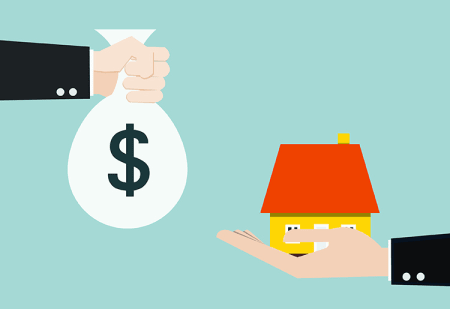
A Guide to Lowering Your Monthly Mortgage Payments
Your mortgage has been approved, you’ve made your down payment and paid all closing costs, and you’re ready to move into your new home. But your biggest cost is still ahead of you: your monthly mortgage payments. So, what exactly are these payments, and what can you do to make sure they cost you as little as possible?

Home Equity Loans vs. Parent PLUS Loans
HELs and PLUS loans are just 2 of the ways parents can borrow the money needed to put their children through college. Compare the pros and cons and application process to learn which one is best for you.

Should You Tap into Your Home Equity to Help Your Kids Buy A Home?
Thanks to secondary loans like home equity loans, you can use your home equity to help your kids buy into the property market.

A First-Time Buyer's Guide to Choosing a Home
Buying a house isn’t only the biggest financial decision most people make - it’s also the most personal. There is no one-size-fits-all house, especially when you factor in budget, mortgage offers, location, and all the red lines and deal-breakers that buyers tend to have.

How I Saved Thousands Negotiating My Mortgage Terms
Buying a house is an exciting time, but it isn’t a stress-free process. Part of the process is getting approved for a mortgage to help pay for the home. My wife and I recently went through this experience when we were moving from Florida to Indiana.

Mortgage vs. Mortgage Refinance - What's the Difference?
The more you understand about your home and the mortgage you pay, the easier it will be to sort through your finances and have realistic expectations for your current situation.

How to Get a Home Loan When You Have Bad Credit
Bad credit may seem like it stands between you and a new home purchase. Fortunately, there are ways to get a mortgage even with bad credit.
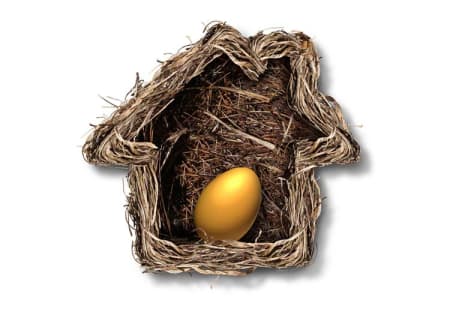
Refinance Without Closing Costs - Is it Right for You?
You might be considering refinancing your mortgage. Before agreeing to a new deal at the lowest rate, it is worth calculating whether you can save more with a no-closing-cost refinance.

7 Factors to Consider When Choosing a Mortgage
When purchasing a home, a mortgage is almost always an inevitability. To ensure the best outcome, it’s important to plan ahead and make a decision that meets your financial and personal needs.

5 Reasons to Tap Your Home Equity
Home equity is the difference between the current market value of your home and the amount of mortgage debt owed. The amount of your home equity typically increases as you pay down the mortgage debt on your home. Home equity is a resource available to homeowners and can be useful if used properly. If you decide to tap your home's equity be sure to consider a variety of lenders and loan types.

FHA Loans: Your Guide to Getting a Loan with Low Credit
If you want to buy a new home, but have a low credit rating or don’t have a lot of cash, you may consider applying for a Federal Government-backed loan. FHA Loan helps borrowers to secure mortgages from authorized lenders for as low as a 3.5% down payment.

Retirement Planning: Home Equity vs. Reverse Mortgage
Your senior years are supposed to be your time to kick back and relax. With your family grown up and hopefully taking care of themselves, and more time on your hands now you’re not working, this could be your chance to seize life again.

How to Get a 100% Financed Mortgage
Buying a new house is an exciting process but one big thing stands between you and the home of your dreams — a down payment. If you haven’t been able to save enough for a down payment, don’t cross homeownership off your to-do list just yet. It is possible to purchase a home without a down payment and finally say goodbye to rent bills for good.

4 Different Ways to Leverage Your Home Equity
Building equity is important because you can tap into it to pay for major expenses such as a home remodel, credit card bills, or college tuition. The more equity you have, the more funds you can access when you need them. Buying a home and building equity is wonderful, but how do you access that cash when you need it?
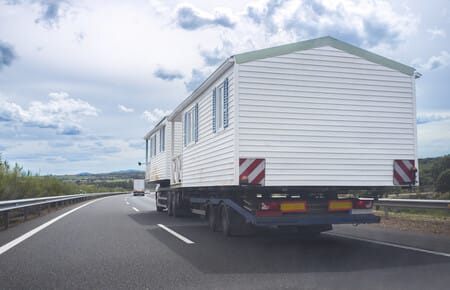
What is a Manufactured Home?
Also known as “prefab” or prefabricated homes, manufactured homes are built in factories. Unlike traditional homes, which are constructed on-site with a permanent foundation, manufactured homes are put together on a temporary chassis and then transported to the site where they are installed.

First-Time Homebuyer Financial Assistance 101
Buying your first home can feel overwhelming. Finding the perfect home, putting together a down payment, and getting approved for a mortgage - it’s a lot of work and the financial burden adds up quickly. The good news is that first time buyers have special programs designed just for them. We’ll explain everything you need to know about how to qualify for them.
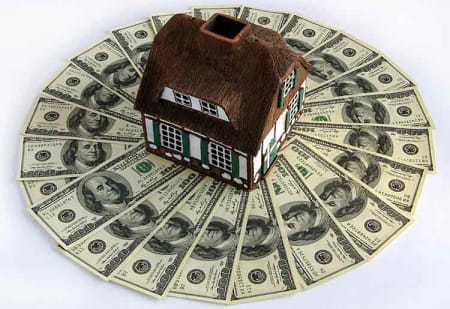
Understanding Common Mortgage Terms
Applying for a mortgage involves a lot of confusing numbers, but it's actually the words around those numbers that you should be focused on. Learning and understanding common mortgage terms can make the application process a lot easier.

Is Refinancing Your Mortgage the Right Move for You?
Times change, so why shouldn’t your mortgage? Mortgage refinancing (sometimes referred to as taking out a second mortgage) can help you save money, get cash in your pocket, lower your monthly payments, shorten your loan term and more! Learn more about mortgage refinancing and get the facts before you decide if it’s the right move for you.

Is A 15-Year Mortgage Right for You?
So, you’re in the market for a house? You’ve probably been reading up on all there is to know about taking out a mortgage. The basics are pretty straightforward: once you put in a down payment, a mortgage loan covers the remaining cost of a home, which you’ll need to pay back over x number of years.

Mortgage Pre-Approval: The Basics
What does pre-approval mean when you’re looking to buy a home? Understand how it can help you and how to apply for pre-approval, which can give you an idea how much of a mortgage you will qualify for when it’s time to make an offer on your dream home.

The Complete Guide to Cash-Out Refinance
If you’re a homeowner, one way to convert some of that equity into actual cash is with a cash-out refinance.

Should I Refinance My Mortgage?
Refinancing your home loan can save you a lot of money in the long run. However, there are some things to be aware of. In this article, I'm going to unpack what you need to know about refinancing your home so you can get started right away.

These Simple Steps Can Help You Improve Your Credit Score
Applying for a term loan can be difficult and tedious, not to mention all the different eligibility criteria. Applying for a mortgage? Be aware of the debt-to-income limit. Business loan? Let’s hope you’re making more than the minimum monthly revenue. Personal loan? Get ready to reveal your annual income.

Tougher Mortgage Requirements? Learn How You Can Qualify
As mortgage lenders are raising the bar on their requirements for borrowers, getting a mortgage becomes harder and harder. Now is the time for homebuyers and those looking to refinance to be smarter about shopping for a new loan.
